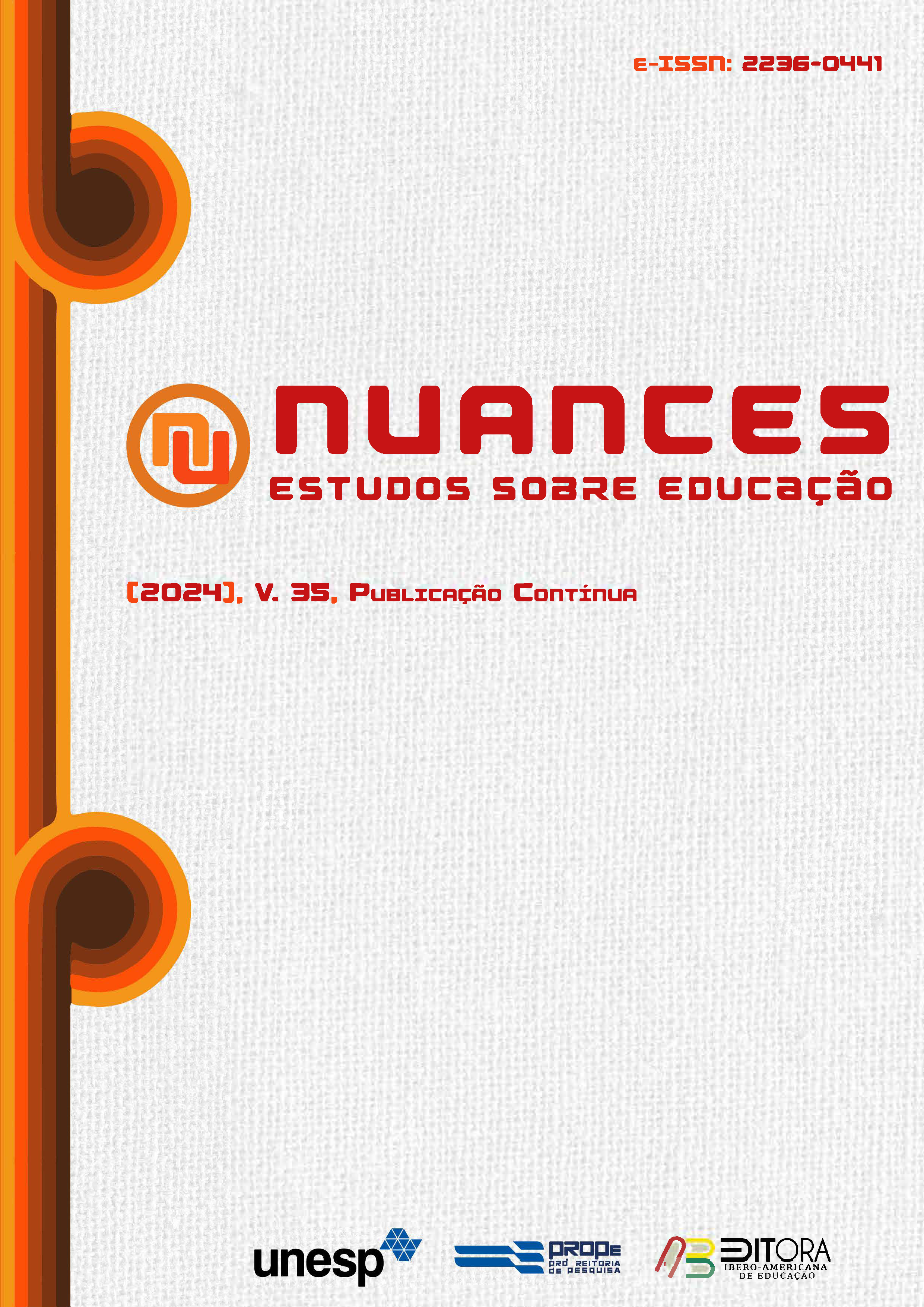Use of obscene language among youth
DOI:
https://doi.org/10.32930/nuances.v35i00.10657Keywords:
Obscene language, Young people, Profanity, SpeechAbstract
The study focuses on the use of profanity among modern youth, emphasizing its psychological, social, and educational aspects. The authors employ a mixed methodological approach combining quantitative surveys and qualitative interviews with students at the Industrial University of Tyumen (Tyumen, Russia). The authors propose a classification of reasons that prompt young people to use obscene language and determine their specifics. Psychological reasons behind the use of profanity include the need for integration, attention, catharsis, self-expression, and freedom. The theoretical and practical significance of the study lies primarily in the collection, systematization, and generalization of material on obscene language and the elaboration of the reasons for its use. The study provides a basis for training sessions to develop students' speech culture, build their self-regulation skills, and relieve tension in stressful situations. The findings can be used by psychologists, linguists, and teachers in the preventive and educational work at educational organizations.
Downloads
References
BANDURA, A. Social Foundations of Thought and Action: A Social Cognitive Theory. Prentice-Hall, 1986.
DEBRAY, C. Swearing, identity and power in professional interaction. Journal of Pragmatics, v. 215, p. 145–158, 2023. DOI: 10.1016/j.pragma.2023.07.002.
GARIAEV, P. P. Volnovoi geneticheskii kod. Moscow: Izdattsentr, 1997. p. 108.
GRISHEVA, K. A.; KONDRATEI, M. V.; TKACHENKO, V. V. Nenormativnaia leksika, osnovnye faktory ee upotrebleniia. Young Scientist, [S. l.], v. 6, n. 65, p. 654–658, 2014.
HUSAIN, W.; WASIF, S.; FATIMA, I. Profanity as a Self-Defense Mechanism and an Outlet for Emotional Catharsis in Stress, Anxiety, and Depression. Depression research and treatment, 8821517, 2023. DOI: 10.1155/2023/8821517.
LEVIN, I. I. Ob obstsennykh vyrazheniiakh russkogo iazyka. In: LEVIN, I. I. Izbrannye trudy. Poetika. Semiotika. Moscow: Iazyki russkoi kultury, 1998. p. 809–919.
MITIN, A. N. Tot, kto pervym obrugal sopernika, zalozhil osnovy sovremennoi tsivilizatsii [The first man to swear at his rival laid the foundations of modern civilization]. Business, Management and Law, [S. l.], v. 3, n. 20, p. 29–34, 2009.
PRONIUSHKINA, T. G.; KOMAROVA, V.A. Vliianie nenormativnoi leksiki na psikhosomaticheskoe razvitie lichnosti [The influence of profanity on psychosomatic personality development]. Naukosfera, [S. l.], n. 9, p. 14–18, 2020.
PUBLIC OPINION FOUNDATION. Results of public opinion polls on politics, economics and everyday life of Russians. Available: https://fom.ru. Accessed: 14 Jan. 2024.
SEMENKOVA, S. N.; TABURKIN, V. I.; DORONINA, M. V.; KRYUCHEVA, Y. V.; GAVRILYUK, N. P. Modern science in moral dimension. Dilemas Contemporaneos: Educacion, Politica y Valores, [S. l.], v. 6, n. 3, art. 98, 2019.
STAPLETON, K.; BEERS FÄGERSTEN, K.; STEPHENS, R.; LOVEDAY, C. The power of swearing: what we know and what we don't. Lingua, [S. l.], v. 277, p. 103406, 2022.
SUDAKOVA, M. V.; GRIGOREVA, T. Iu. Teoreticheskie podkhody k izucheniiu problemy ispolzovaniia nenormativnoi leksiki v teorii i praktike nauchnogo znaniia [Theoretical approaches to the problem of profane language usage in the theory and practice of scientific research]. Eurasian Scientific Association, [S. l.], v. 5-6, n. 63, p. 470–472, 2020.
SVETORUSIE. Vliianie mata na zdorove cheloveka [The impact of swearing on human health]. LiveJournal, [S. l.], nov. 18, 2017. Available: https://svetorusie.livejournal.com/77351.html. Accessed: 14 Jan. 2024.
TAJFEL, H.; TURNER, J. C. An integrative theory of intergroup conflict. In The Social Psychology of Intergroup Relations. Monterey: Brooks/Cole, 1979. p. 33-47
ZHELVIS, V. I. Pole brani. Skvernoslovie kak sotsialnaia problema v iazykakh i kulturakh mira [The battlefield of profanity. Profanity as a social problem in world languages and cultures]. Moscow: Ladomir, 2001. 349 p.
Published
How to Cite
Issue
Section
License
Copyright (c) 2024 Nuances: estudos sobre Educação

This work is licensed under a Creative Commons Attribution-NonCommercial 4.0 International License.
Atribuição-NãoComercial
CC BY-NC
Esta licença permite que outros remixem, adaptem e criem a partir do seu trabalho para fins não comerciais, e embora os novos trabalhos tenham de lhe atribuir o devido crédito e não possam ser usados para fins comerciais, os usuários não têm de licenciar esses trabalhos derivados sob os mesmos termos.





